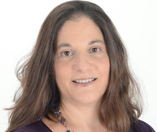SIG on Family Violence report


Submitted by co-convenors: Hagit Dascal-Weichhendler (left) and Kelsey Hegarty (right).
The Special Interest Group on Family Violence (SIG FV) has focused over the last two years on expanding our global connections to systematically support family doctors to address family violence in practice and policy. We have an Executive group consisting of the co-convenors, Hagit Dascal-Weichhendler (Israel) and Kelsey Hegarty (Australia), the past co-chair Leo Pas and communications lead Raquel Gomez Bravo. In addition to this group, we have a steering committee involving various regions (see below) and Young Doctor links through Nina Monteiro.
Steering Committee
Kate Anteyi - Nigeria
Jinan Usta - Lebanon
Nina Monteiro - Portugal
Joyce Kenkre – UK
Carmen Fernández-Alonso – Spain
Nena Kopcavar - Slovenia
Omneya Ezzat Elsherif - Egypt
Sajar Othman - Malaysia
Our current and future activities are structures under six main strategies: Connect, Resource, Support, Educate, Communicate, Evaluate.
Connect:
We have expanded our connections across regions whilst maintaining our strong connection to the Young Doctors movement, particularly with Ana Nunes Barata and the Womens Working Party, particularly with Amanda Barnard. The group continues to grow connecting with other professionals who are interested in contributing their knowledge and ideas to the SIG FV.
Resource:
Our Call to Action statement of recommendations was approved by the executive group in March of 2018, focusing on exchange and dissemination of training curricula and new knowledge from research. The statement called for at national levels that colleges and academies in WONCA should address family violence policy, training and procedures as a matter of urgent priority in order to have their members supported and resourced to manage this common problem effectively and in an evidence-based manner
Support:
In October 2018, WONCA executive agreed to our proposed framework for Family Violence consultancy work, and we endeavour to gather interest in participating in that work moving forward in 2019. Taking into consideration the national and cultural contexts, and the specific services within each country, our framework will offer education and training, policy and research through a three-tiered approach, either through face to face, online help and secondary consultation.
Educate:
SIG FV has continued to work collaboratively with other groups to educate, including VdGM, WWP Rural, WWPWFM, and Emergency Medicine SIG and Patient Safety SIG through a number of presentations and workshops in conferences. Furthermore, we had a number of abstracts accepted at conferences, including WONCA Rural in Delhi (April), WONCA Europe in Krakow (May) and the WONCA World conference in Seoul (October), where we also held our annual SIG FV group meeting, and EURIPA Rural Health Forum in Israel (November).
Communicate:
A major achievement has been the update of our website and online newsletters as we seek to communicate with a broader group of people. Alexandra Wilson (SIG FV support person) and Raquel Gomez Bravo have done an excellent job in coordinating this aspect of our work.
Evaluate:
Members continue to link together to apply for research grants with Leo Pas leading this work in Europe. We continue strong links with the World Health Organization (WHO) on both clinical guidelines, curriculum and research. Our Co-Chair Kelsey Hegarty worked in an advisory capacity delivering WHO Gender Based Violence training in Myanmar, with Dr Claudia Garcia Moreno, which included work with doctors and nurses. Members had previously advised on the content of curriculum for Gender based Violence for preservice and post service, which will be released in 2019. Dr Jinan Usta, member of SIG, attended WHO Train the trainer program in 2018 for delivering this curriculum. We highlight the WHO materials on our website, which members have contributed to including a Clinical Handbook and a Health Systems Manual.